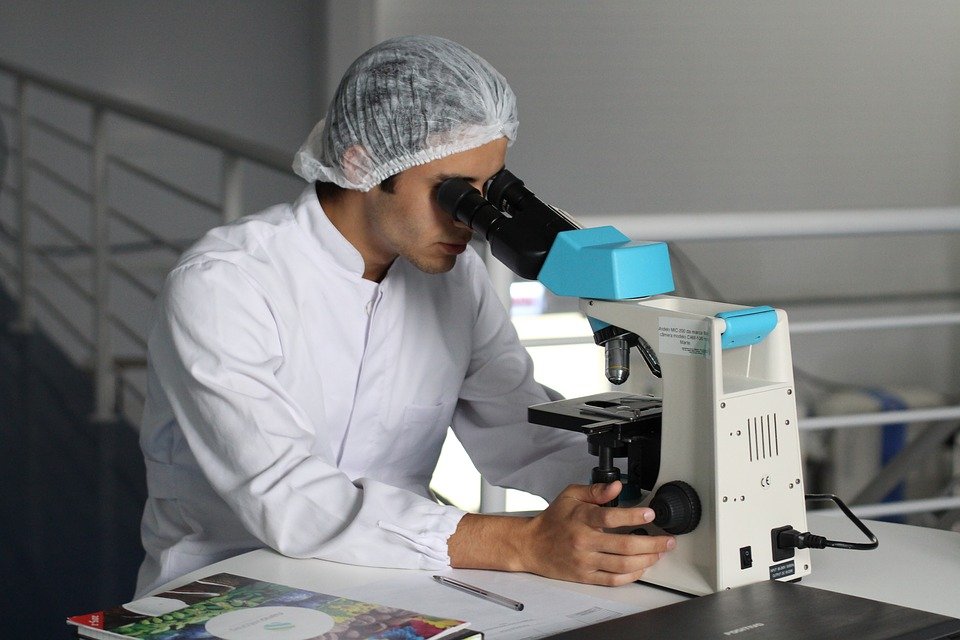IISER Bhopal adopts new strategies to fight breast cancer
October 12, 2017 | Thursday | News
The team has been able to reverse aerobic glycolysis by inhibiting DNA methylation or reducing the expression of BORIS (Brother of Regulator of Imprinted Sites) gene
Source: Pixabay
New strategy to fight breast cancer has been recently adopted by a team of researchers led by Dr. Sanjeev Shukla from the Department of Biological Sciences, Indian Institute of Science Education and Research (IISER), Bhopal.
Researchers found the splicing was different in the case of cancer cells — instead of exon 9, exon 10 gets included when the pre-mRNA is spliced into mRNA.
The research is based on the fact that inhabiting the growth and accelerating the death rate of breast cancer cells may be possible by starving the cancer cells of glucose or by inhibiting or reversing the energy production process (aerobic glycolysis). Aerobic glycolysis confers the proliferative advantage to the cancer cells. The results were published in the journal the Proceedings of the National Academy of Sciences.
Dr Shukla said, “In normal cells, exon 9 gets included while exon 10 is excluded when precursor messenger RNA (pre-mRNA) is spliced or edited into mature messenger RNA (mRNA). The researchers found the splicing was different in the case of cancer cells instead of exon 9, exon 10 gets included when the pre-mRNA is spliced into mRNA.”
“The methylation at exon 10 allows BORIS to bind to the exon 10 and leads to the inclusion of exon 10 in the mature mRNA. Due to aberrant alternative splicing, exon 10 gets included in the mature mRNA leading to the formation of PKM2, a cancer-specific isoform of pyruvate kinase”, he added.
The DNA methylation along with BORIS regulates the switch from PKM1 to PKM2 isoform and this is the first time DNA methylation causing alternative splicing in cancer cells has been studied. DNA methylation also silences tumour suppressor genes.
Dr Shukla also said, “The BORIS gene is predominantly expressed in germ cells and gets over expressed in cancer cells but not in somatic cells. So BORIS is a potential target for cancer therapy. BORIS acts as an oncogene in cancer progression and BORIS overexpression is associated with poor survival outcomes.”
The team has been able to reverse aerobic glycolysis by inhibiting DNA methylation or reducing the expression of BORIS (Brother of Regulator of Imprinted Sites) gene.
The team also that studied two breast cancer cell lines and found increased exon 10 in both cancer cell lines but exon 9 was found to be increased in normal, primary cells. The presence of exon 10 in breast cancer cell lines led to higher expression of cancer-specific PKM2 isoform.
“To rule out other factors responsible for alternative splicing of PKM, the researchers mutated the BORIS binding site at the PKM exon 10 region. There was reduced exon 10 and increased exon 9 in the mutant cells. Also, there was reduced BORIS enrichment which resulted in reduced exon 10 inclusion in the mutant cells,” Dr. Shukla added.
As predicted, BORIS depletion reduced the consumption of glucose in breast cancer cells. Inhibition of DNA methylation too decreased glucose uptake. Interestingly, BORIS depletion went beyond reduction in glucose consumption — it resulted in reduced cancer cell growth and cell viability.
Smriti Singh from the Department of Biological Sciences, Indian Institute of Science Educationand Research (IISER), Bhopal and the first author of the paper said, “When BORIS is down regulated it affects alternative splicing of several genes which are associated with cancer hallmark (cancer growth, reduced apoptosis abnormal metabolism). So targeting BORIS will have a great impact for cancer therapy. So we must determine whether inhibiting DNA methylation or BORIS is more effective in cancer therapy.”
“Inhibiting DNA methylation is easier as drugs are already available, but it might also have more side effects. But as BORIS is a cancer-specific target and is also involved in other cancer-related hallmark (cancer growth, reduced apoptosis and abnormal metabolism), targeting it might be a better approach for cancer therapy,” says Dr. Shukla.









